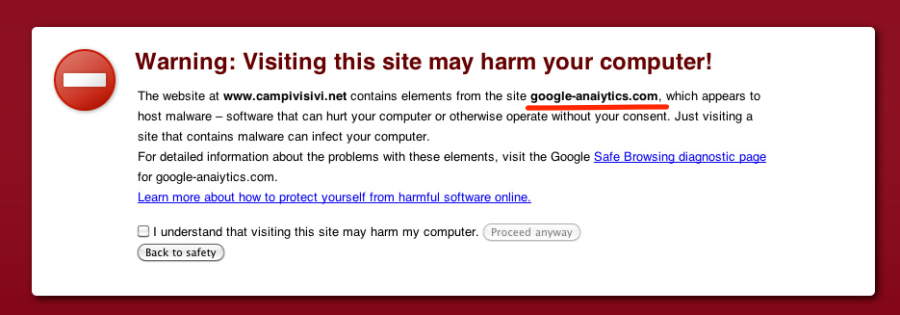The 20-Second Trick For Protection From Malware
However, running system updates are necessary. If you put them off, the repercussions could be much worse than dissatisfied in-laws. Take, for instance, what occurred with the Look at this website Wannacry ransomware attack, in which more than 200,000 computer systems were compromised across 150 different countries, with total damages that varied in the hundred millions to billions of dollars.
With the mass adoption of cordless technology in the last decade, our personal details is constantly being sent over public networks ... and it's not always safeguarded along with we believe. Our computers link to files, printers, and the web constantly, and hackers like to take advantage of unguarded internet traffic. The truth is, you're playing with fire if your do the following: Insist on utilizing public Wi-Fi without internet browser defense Do not utilize a password for your own personal network (and share that info with others) Rely just on WEP router encryption, the weakest there is.
You require a cordless network in the house that is WPA or WPA 2 encrypted. Never broadcast your SSID to others even if you have reliable guests who wish to share the network. Instead, develop a visitor SSID and various password for those individuals. Bottom line: if your malware database network is not secure, you need to utilize a virtual personal network.
See This Report on Website Malware Protection
You require to know what to try to find in a quality VPN and, specifically, you need to check and make certain that the VPN you are utilizing is not logging your information, which some VPNs (normally complimentary ones) often do. When it pertains to street criminal offense, there are sensible principles that instantly keep you safe, such as never ever taking a trip alone during the night, remaining in well-lit locations, and so on).

Avoid websites that include pirated material, especially gush websites like The Pirate Bay. These kinds of places are packed with malware. You should never ever open an email accessory from someone you do not acknowledge, which could be part of a phishing scam. Here are a few suggestions: Scan every file prior to you download it, even if the file is sent out from household or friends.
According to the most recent data, more than 18 million sites on the internet are contaminated with malware. There are obvious red flags regarding corrupted websites, so you ought to not just instantly leave them, but also report them to your antivirus company. Second of all, constantly make sure that you go to a site with https://www.washingtonpost.com/newssearch/?query=malware protection an SSL http://edition.cnn.com/search/?text=malware protection certificate.
Some Known Details About Website Malware Protection
When a web browser, such as Chrome, informs you that a website in not safe, act to prevent the entire page from being loaded. Destructive websites are frequently hosted in the data centers of inexpensive webhosting suppliers, numerous of which are host thousands of websites on a single shared server with little to no quality control.
It is getting significantly hard to manage all of your individual info online. Why is this? Should not advances in encryption innovation and requirements make us more safe, not less? The truth is, all business today are "internet" business. They keep your all information in digital form-- your home address, social security numbers, usernames, passwords, and transaction history.
And though encryption is more powerful today than ever in the past, so too is the value of your digital tricks. One small hack can release the personal details of thousands or countless users. Which's not even beginning with message boards and social networks profiles where hackers can social engineer individual details.

The Facts About Website Malware Protection Uncovered
A recent report by Panda Security demonstrates how stronger file encryption requirements could make it easier for some types of malware to infect your computer system. Many online businesses have policies for GDPR compliance, however they might accidentally create a backdoor for brand-new types of encrypted malware. In summary, there are not almost sufficient precautionary methods you can require to prevent identity theft.
Cybercriminals are often adjusting and introducing brand-new malware. Malvertising, for instance, is simply one example of malware. In addition to remaining updated with all your programs and operating system, likewise get rid of any software you no longer use. Out-of-date programs no longer have spots (updates/fixes) and leave you susceptible to attacks.
federal government looking over our shoulders, security agencies are in fact assisting. In fact, there's a branch of Homeland Security called the Cyber Security Department. The analyze all types of threats, both private and public, and regularly upgrade Malware is extremely widespread, yet it is possible to avoid.

Some Ideas on Web Security You Should Know
To wrap up, here's how to safeguard yourself from malware: Constantly utilized a trusted antivirus program from a trusted supplier. Run scans frequently. Constantly upgrade your operating systems and software application. Usage security networks, proxies, and/or VPN's whenever possible. Don't click on everything you see (a site or email link). Secure your usernames and password as if your monetary future depends on Find more information it.
When you take these standard precautions, you will vastly improve your security and ensure that your computer system runs as quickly as it should. .
Post Views: 436 Practically every website owner or webmaster had to deal with website infections at some point. But despite the fact that there is a great deal of info Helpful resources about malware over the Internet, we regretfully tend to ignore protecting our sites from them. As you might understand, viruses are types of malicious codes that permeate into your site and disrupt its' regular performance.
The Best Guide To Website Malware Protection
For the many part site owners are not mindful that their site was contaminated, and usually they will not take proactive steps before they see noticeable signs of a hacked site. Every site owner should comprehend the root of the issue-- site vulnerabilities are the cause and infections are the signs.
If your site was infected, getting rid of the viruses is not enough. You must understand how a hacker managed to inject the infection. You need to examine your site for vulnerabilities and fix them. If the only thing your do is cleaning up the website, you are running the threat of being reinfected.
The very best method going about it is putting in a "Security" paragraph in your strategy prior to you even begin developing your website. Just as you will surly set up an alarm system on your home or shop, so why do http://www.thefreedictionary.com/malware protection you overlook protecting your virtual one?Why do we secure our computer systems from viruses with antivirus software application and firewalls, installing alarm systems on our physical offices, but we neglect to safeguard our web resource?Often it's due to a popular misunderstanding-- that our host is accountable for the protection of our site.
Web Security Fundamentals Explained
Its' function is to offer you with a physical place where your web resource will exist, much like a hotel. And like a hotel that it is, once again for the many part, is not accountable for your stolen residential or commercial property, a host is not responsible for the security of your website.